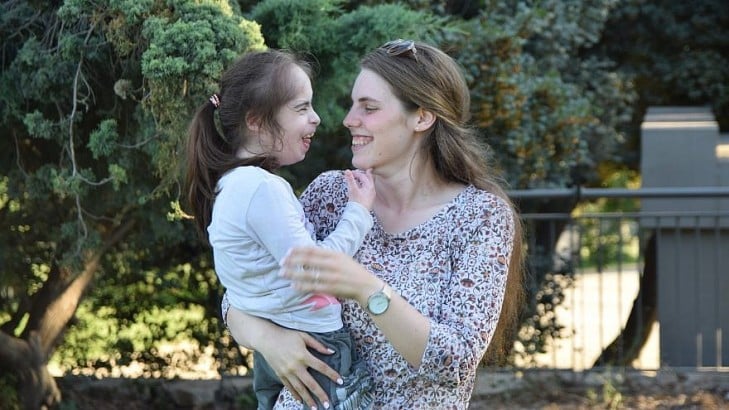A new community named “Daniel” in the Negev will provide home care for children with severe and complex medical and therapeutic needs.
By: Josh Hasten/JNS
The Israeli government gave its stamp of approval in September on the establishment of an inclusive new town within the Merhavim Regional Council in Israel’s Western Negev Desert.
The construction of the new community, which will be named “Daniel,” is being built in collaboration with Merhavim; the Israeli Ministry of Construction and Housing; and ALEH, Israel’s network of care for children with severe complex disabilities. The targeted completion date is within the next two years.
ALEH currently runs four residential facilities providing more than 750 of Israel’s most vulnerable children with high-level medical and rehabilitative care.
The name “Daniel” was chosen in memory of 4-year-old Daniel Tragerman, who was killed in a mortar attack launched by terrorists at communities near the Gaza border in 2014, just two days before the end of the Israel Defense Forces’ “Operation Protective Edge” against Hamas. Daniel’s mother, Gila, is the spokesperson for the Merhavim Regional Council.
Set for construction Just west of Ofakim and adjacent to ALEH Negev-Nahalat Eran—the network’s southern-based rehabilitative village—Daniel will integrate residents with severe complex disabilities as part of the communal fabric and provide housing for medical professionals who will find employment at ALEH’s new Neuro-Orthopedic Rehabilitation Hospital, slated to open on the ALEH Negev-Nahalat Eran campus in early 2019.
A Model of Integration
Former Knesset member Avi Wortzman, who serves as director general of ALEH Negev-Nahalat Eran, explained the concept of the new town to JNS.
“The idea was to build a new community near ALEH Negev so that families who have kids with special needs will be able to get treatment close by. At the same time, this will be an ideal housing option for the medical personnel and therapists who work at ALEH,” he says.
Wortzman believes that within five years, an estimated 1,000 employees will have found work at Aleh Negev, including at the rehabilitation village and within the new hospital. He envisions another 1,000 volunteers serving within the organization and its various projects.
Israel is already in the midst of a severe housing crisis, and ALEH views this new community, which will include 500 units when completed, as a solution towards easing that burden.
But most importantly, Wortzman notes that the new town will offer “a high-standard of living and feature facilities that can accommodate and will be accessible for people with disabilities.”
He adds that the community will be a model of integration to which the rest of the country can turn to as an example. “I see this as a utopia where children with disabilities and others will be able to live together and interact with each other,” he says.
According to Wortzman, “over the past few years, Israelis have gotten much better when it comes to the inclusion of people with disabilities—whether accepting them into their communities or making facilities wheelchair- [and handicapped-] accessible—but we still have a long way to go.”
He is proud of a current project ALEH is running for 13,000 ninth-grade students in Israel in collaboration with the Ministry of Education called “Repairing the World, Together,” in which the children study from a curriculum that teaches them how to accept others with disabilities. It is paralleled by time volunteering within ALEH’s facilities.
‘The Future of Building the Negev’
Head of the Merhavim Regional Council Shay Hajaje views the construction of “Daniel” in the Negev as a remarkable Zionist endeavor.
“Building this town is just amazing. This is a core principle in Zionism,” he tells JNS, adding that “this new unique town has the potential of assisting so many people.”
He adds that naming the town “Daniel” after his spokesperson’s son gives the project so much more meaning: “This is a big privilege to be a part of.”
Wortzman, who lives in the city of Beersheva, known as “the capital of the Negev,” notes that he turned down an opportunity to serve for a second term in the Knesset in order to remain at the helm of ALEH’s southern branch. “Being an MK is important, but going to work every day and knowing I can enhance people’s lives, this is very fulfilling. Now with the construction of the hospital and the new construction of ‘Daniel,’ it’s [even more of] an honor to be a part of the future of building the Negev.”
According to the Ministry of Construction and Housing, there is already a high demand to live in Daniel, as it will draw a wide variety of people, including ALEH-affiliated families and health providers, as well as young couples from the region looking for a new community, and career IDF soldiers who serve in the area.
“The establishment of new towns in the south will bring more people from Israel’s center, strengthening its economy and increasing the safety of the overall area,” said Minister of Construction and Housing Yoav Gallant in a statement.
“And by partnering with ALEH, we will not only be creating jobs and impacting the bottom line,” he said, “but emphasizing social aspects like caring for those with disabilities and special needs.”
